 Petzlover
Petzlover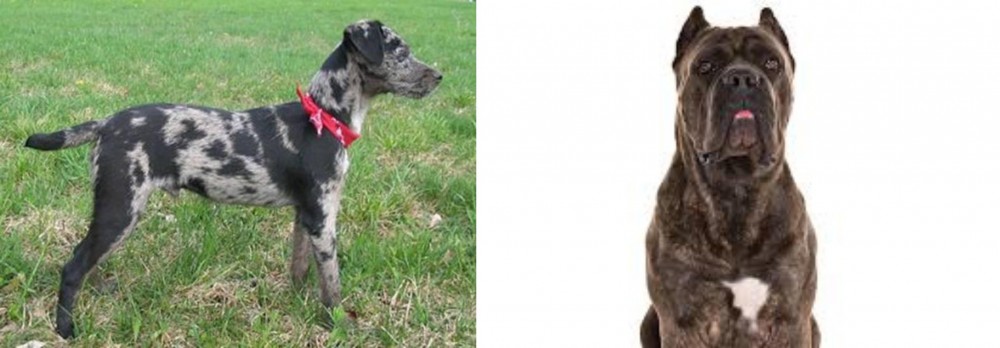 Atlas Terrier is originated from United States but Cane Corso is originated from Italy. Atlas Terrier may grow 42 cm / 16 inches shorter than Cane Corso. Atlas Terrier may weigh 44 kg / 97 pounds lesser than Cane Corso. Atlas Terrier may live 5 years more than Cane Corso. Both Atlas Terrier and Cane Corso has almost same litter size. Both Atlas Terrier and Cane Corso requires Moderate Maintenance.
Atlas Terrier is originated from United States but Cane Corso is originated from Italy. Atlas Terrier may grow 42 cm / 16 inches shorter than Cane Corso. Atlas Terrier may weigh 44 kg / 97 pounds lesser than Cane Corso. Atlas Terrier may live 5 years more than Cane Corso. Both Atlas Terrier and Cane Corso has almost same litter size. Both Atlas Terrier and Cane Corso requires Moderate Maintenance.
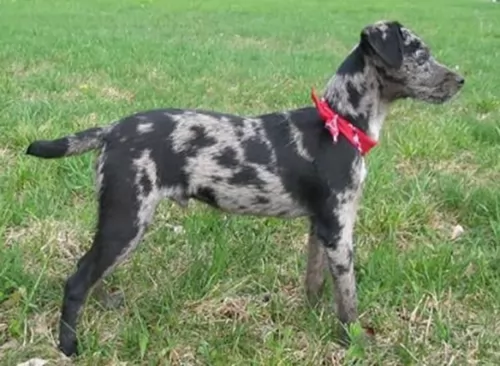 The Atlas Terrier is a rare dog. He was developed in the USA and is a blend of Jack Russell Terriers, Rat Terriers, Border Terriers and Patterdale Terriers. It was in 1990 that Lauren Wolfe developed a breed similar to the Jack Russell, but with a solid colour, and in fact she had two dogs that were solid red in colour. This was as a result of a cross between a Jack Russell Terrier and a Border Terrier.
The Atlas Terrier is a rare dog. He was developed in the USA and is a blend of Jack Russell Terriers, Rat Terriers, Border Terriers and Patterdale Terriers. It was in 1990 that Lauren Wolfe developed a breed similar to the Jack Russell, but with a solid colour, and in fact she had two dogs that were solid red in colour. This was as a result of a cross between a Jack Russell Terrier and a Border Terrier.
With the crossing of different terriers, the foundation for the Atlas Terrier was formed. Lauren Wolfe named the breed ‘Atlas Terrier’ because many terriers from various parts of the world were used to develop this specific breed. It was in 2001 that the Atlas Terrier Association was founded.
 As a descendant of the Canis pugnax, the Cane Corso dog which hails from Italy has been used for guarding livestock and property. The Corso’s lineage goes far back to ancient Roman times, with the name of dog actually meaning bodyguard dog.
As a descendant of the Canis pugnax, the Cane Corso dog which hails from Italy has been used for guarding livestock and property. The Corso’s lineage goes far back to ancient Roman times, with the name of dog actually meaning bodyguard dog.
As life changed in Italy, the Corso became more rare so that some enthusiasts of the breed began to look at helping the dog recover from the brink of extinction. By 1994, the breed was accepted by the Italian Kennel Club and the dog was also recognized internationally, with the American Kennel Club recognizing the Cane Corso in 2010.
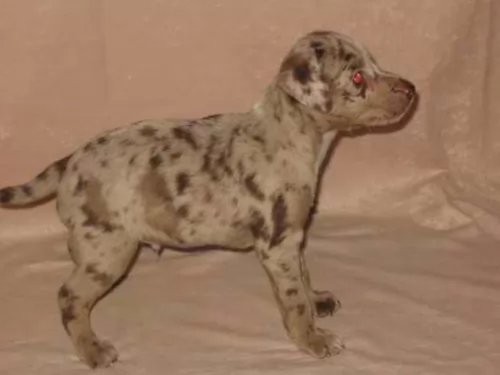 Atlas Terrier dogs are a small to medium sized dog but with a strong personality. With their two coat varieties – smooth and wire – and coming directly from the Jack Russell Terrier, this feisty dog suits those who want a low maintenance, fun breed who will join them on their walks or jogs. These dogs are brave and loyal and will double as a watch dog and family pet.The breed is accepted for registry and it is classified under the Terrier dog category.
Atlas Terrier dogs are a small to medium sized dog but with a strong personality. With their two coat varieties – smooth and wire – and coming directly from the Jack Russell Terrier, this feisty dog suits those who want a low maintenance, fun breed who will join them on their walks or jogs. These dogs are brave and loyal and will double as a watch dog and family pet.The breed is accepted for registry and it is classified under the Terrier dog category.
There are 3 sizes of Atlas Terrier – toy, miniature, and standard. The toy variety is 23 to 28 cm tall at the shoulder and weighs 2.7 to 5.4 kg. All three varieties are the same except for height and weight.
The coat of this dog is thick and may come in a variety of colours such as brindle or merle. The Atlas Terrier is also found in solid colours and sometimes you will find that they have white markings on the face, feet or chest. Most times the tail of the Atlas Terrier is docked, but if not, the tail curls over the back. The ears of the Atlas Terrier are V-shaped and they fold forward.
 The Cane Corso is a large dog which hails from Italy. He is a molosser. The dog is muscled and is somewhat less bulkier than other Mastiff breeds. He is 64-70 cm in height and he weighs 45-50 kg.
The Cane Corso is a large dog which hails from Italy. He is a molosser. The dog is muscled and is somewhat less bulkier than other Mastiff breeds. He is 64-70 cm in height and he weighs 45-50 kg.
The head of the Cane Corso is large and the ears are cropped and stand erect. The tail is also traditionally docked to give the dog a distinctive look, but these days, with regulations regarding tail docking, the dog can also be seen with a full tail.
The Corso has a short coat which comes in fawn shades, gray, red, brindle or black shades. White markings are common on the chest, chin, toes and sometimes on the nose.
The Corso is a working dog who needs lots of mental and physical stimulation. He’s an inquisitive dog who is confident and ready to meet life as it comes. He’ll want a strong, firm owner with leadership qualities. He'll require training and socialization and then he becomes an affectionate, obedient pet who gets on well with all members of the family as well as other pets. He is a highly intelligent dog and responds well to training.
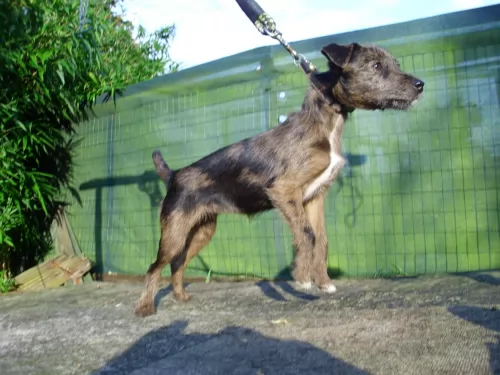 Atlas Terriers most certainly have a bit of the Jack Russell in them and these dogs are social, outgoing, mischievous and affectionate. They’re just like your regular naughty child and having one of them in your home will mean energy and lots of fun and games.
Atlas Terriers most certainly have a bit of the Jack Russell in them and these dogs are social, outgoing, mischievous and affectionate. They’re just like your regular naughty child and having one of them in your home will mean energy and lots of fun and games.
This is a highly social breed and he won’t like to be left alone every day. Just like a human child, he will need to be stimulated to ward off boredom and to prevent him from becoming destructive.
The Atlas Terrier just loves games and if you’re ready for a game, he will be more than ready to take part. He is intelligent and will therefore responds well to training and socialization. When properly socialized, Atlas Terriers get along well with children, and because they’re not an aggressive breed, if they’re properly trained and socialized they will get along with other pets too. Atlas Terriers make excellent pets, but he is a strong willed dog and will require an owner who is firm, but fair.
 The Cane Corso is known for his agility and athleticism. He is full of energy and he also wants lots of attention and companionship from his human family. With proper training and socialization his temperament changes so that he becomes a super friend and companion while also being protective.
The Cane Corso is known for his agility and athleticism. He is full of energy and he also wants lots of attention and companionship from his human family. With proper training and socialization his temperament changes so that he becomes a super friend and companion while also being protective.
The dog is attentive and receptive to training. The way a dog turns out is essentially what the owners are like, and many Cane Corso dogs have been blamed for being aggressive because they’ve been brought up by aggressive, abusive and irresponsible owners.
The Cane Corso is a large dog with an exuberant nature and who expresses his joy by snorting, wheezing, grunting and slobbering. Treat him well as a family member and you’re going to have a wonderful friend and protector.
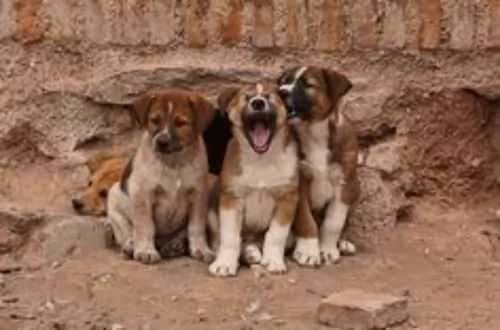 The selective breeding program of Atlas Terriers has meant that this is a robust, spunky breed free of any major health concerns. While they are a low maintenance breed with longevity on their side, you still have to be a responsible pet owner and see that your Atlas Terrier puppy gets all those must have injections.
The selective breeding program of Atlas Terriers has meant that this is a robust, spunky breed free of any major health concerns. While they are a low maintenance breed with longevity on their side, you still have to be a responsible pet owner and see that your Atlas Terrier puppy gets all those must have injections.
Tiny puppies are susceptible to infectious diseases and will have to be vaccinated against them from 8 weeks on and then also get an annual booster. The diseases to be vaccinated against include hepatitis, distemper, parvovirus, coronavirus, eptospirosis and parainfluenza. Vaccinations must be kept up to date and it is mandatory for your puppy to be vaccinated against rabies.
 The life expectancy of the Cane Corso is 10 to 12 years. He is a large, healthy dog breed, but all large dogs are inclined towards bone and joint problems which includes hip dysplasia. Your Cane Corso is also prone to eye defects.
The life expectancy of the Cane Corso is 10 to 12 years. He is a large, healthy dog breed, but all large dogs are inclined towards bone and joint problems which includes hip dysplasia. Your Cane Corso is also prone to eye defects.
Strangely, dogs have 3 eyelids, with the third eyelid being home to tear producing gland. There are some dogs where the ligament fails so that the gland pops out, looking like a cherry stuck at the inner corner of the eye. The veterinarian will be able to perform surgery to attach the gland back.
There are dogs where the eyelids roll inwards. Entropion causes hair to rub on the surface of the eye, resulting in pain and also damage to the cornea. Sometimes surgery will be necessary to fix the eyelid.
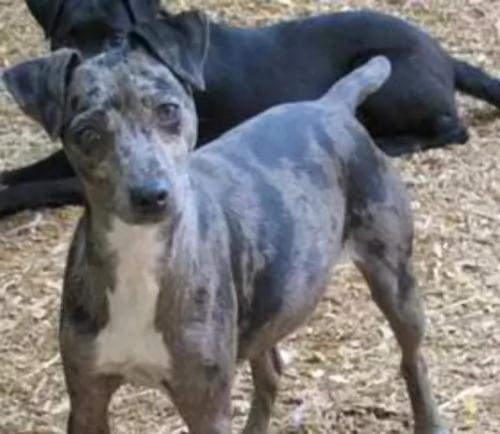 As a medium shedder, the Atlas Terrier will require some grooming. Grooming is easy and a brush twice a week with a rubber-bristled brush will remove those loose hairs and give his coat a sheen.
As a medium shedder, the Atlas Terrier will require some grooming. Grooming is easy and a brush twice a week with a rubber-bristled brush will remove those loose hairs and give his coat a sheen.
Always make sure you’re feeding your tiny puppy the right quantities of a food type. Always feed your puppy food which is appropriate to his age. Your 8 week old puppy will require 4 meals a day. A highly active breed such as the Atlas Terrier will require more protein for energy.
Speak to your veterinarian about the perfect diet for your puppy and about wet- or dry foods. There is the choice of feeding your puppy commercial dog food or your own home-prepared meals, but then you want to be sure that your puppy is getting the right balance of minerals and vitamins.
Once your Atlas Terrier is about a year of age, he can go onto one meal a day or a lighter meal in the morning and the evening. Remember to ensure that there is always clean, cool water available for your puppy.
 The short coat sheds fairly heavily twice a year. His coat will certainly need a brush twice a week but during shedding time it will be more often if you want to avoid your home being full of hair. As you brush, its the chance to check for fleas, ticks and skin infections.
The short coat sheds fairly heavily twice a year. His coat will certainly need a brush twice a week but during shedding time it will be more often if you want to avoid your home being full of hair. As you brush, its the chance to check for fleas, ticks and skin infections.
Brush your Cane Corso’s teeth at least 2 or 3 times a week to remove tartar build-up. If you don’t there is the problem of bacteria which can result in gum disease, bad breath and tooth loss.
Your Cane Corso is a large, active dog and will therefore require a high quality food for his breed type. The type of food your dog eats will depend on his age and his activity levels.
The quality of dog food is highly important as it is a contributing factor towards his health. Always try to give your dog some home-made food such as vegetables, rice and meat. Include some raw meat into his diet from time to time as a dog is a carnivore, and raw meat in his diet will help to stave off skin problems. Never forget to check that he has fresh, cool water around the clock.